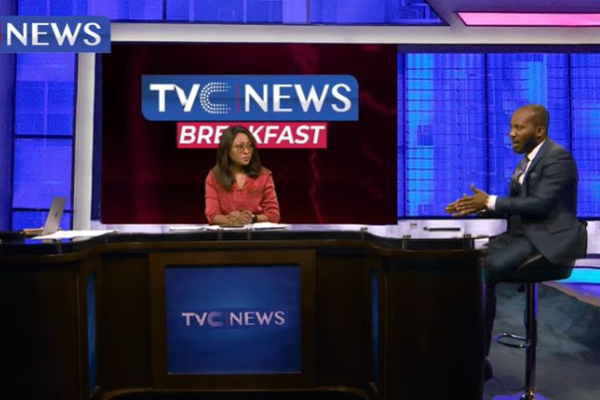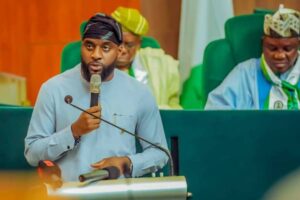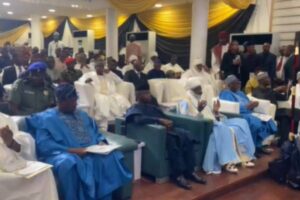The Academic Staff Union of Universities, ASUU, appears to be divided, with the federal government recently presenting certificates of registration to two breakaway factions of the Academic Staff Union of Universities.
The National Association of Medical and Dental Academics (NAMEDA) and the Congress of Nigerian University Academics (CONUA), which will coexist with ASUU, have agreed to resume work.
Inibehe Effiong, a lawyer/social development advocate, stated on TVC Breakfast with Sam Omatseye and Veronica Dan-Ikpoyi that the ongoing strike, which has lasted about seven to eight months, should be viewed as a national embarrassment.
“That you have a country that is so endowed with human and natural resources, but is plagued by such prolonged industrial disputes, industrial conflict in the education sector, and yet there appears to be no clear indication of an immediate resolution at this time.
[wonderplugin_video iframe=”https://youtu.be/6HvAGBhWIV8″ lightbox=0 lightboxsize=1 lightboxwidth=960 lightboxheight=540 autoopen=0 autoopendelay=0 autoclose=0 lightboxtitle=”” lightboxgroup=”” lightboxshownavigation=0 showimage=”” lightboxoptions=”” videowidth=600 videoheight=400 keepaspectratio=1 autoplay=0 loop=0 videocss=”position:relative;display:block;background-color:#000;overflow:hidden;max-width:100%;margin:0 auto;” playbutton=”https://www.tvcnews.tv/wp-content/plugins/wonderplugin-video-embed/engine/playvideo-64-64-0.png”]
“The academic staff union of universities has made the point, and it is true that in 2009 they entered into an agreement with the federal government of Nigeria regarding university funding, autonomy, payment of general academic allowances, conditions of service, matters relating to visitation, and several other areas on which they had reached agreement.
“We have been in this situation because ASUU claimed that the federal government had defaulted on implementation and threatened to go on strike.
“They eventually started this strike, which is still ongoing.
“What is the reason or goal behind the sudden registration of these splinter groups? Is the federal government arguing that the trade conflicts “between ASUU and the federal government cannot be resolved by polarising or organizing”?
Inibehe went on to say that he is particularly curious about who the members of these new unions are.
He stated that he has been monitoring the social media space since these reports became public, but he has yet to see any lecturer from his Alma Mater or any University he is aware of publicly expressing membership in the new unions.
According to the Social Development Advocate, the situation does not demonstrate good faith.
“The federal government went to court, and the court issued an order.” ASUU is aggrieved and has filed an appeal with the Court of Appeal.
“Steps would have been taken to ensure the true dispute is resolved,” Inibehe stated.
Read Also
He asserted that Chris Ngige, the labor minister, lacked the temperament necessary to address this problem.
Inibehe claimed that some of the remarks and statements he has made about ASUU and its members, referring to them as “roadside academics,” have turned very hostile.
“I watched the video where he stomped out of the House of Representative, that is not the temperament of somebody who wants to resolve a dispute with the intellectuals.
“I think Ngige is just trying to prove a needless point.
“My perspective is that it’s sufficient to declare that you’ve thought about the fact that some provisions of the agreement haven’t been made. One would anticipate that the government would act responsibly and then ask all parties who could mediate and resolve this issue.
Inibehe continued, saying that while it was hoped that the house of representatives’ intervention would lead to a resolution, the actions of the minister, Chris Ngige, amount to an escalation.
According to him, registering these bodies will have no effect and will only prolong the strike.
“The have announced the registration, has the strike been called off? ASUU has a structure that is well grounded, that is not a structure that can just be thrown under the bus”.
Inibehe noted that the issues that predicated the strike is not administration specific.
He highlighted several issues, including funding for education, reviving the dead educational system, creating laboratories in universities, paying academics what they should be paid relative to what their peers in other African nations are paid, and, of course, creating an academic environment that is conducive to learning.
The government according to him, had 7 years to put structures in place.
“If the Buhari administration has come to a conclusion that it lacks the capacity to resolve this strike, they should say
so. maybe ASUU will now consider resuming.
” the federal government of Nigeria should not be personalised, it is beyond Muhammadu Buhari.
“The government has a responsibility to guarantee qualitative education and we have a duty to hold the government responsibility,”Inibehe added.





